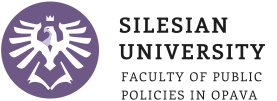Central European Papers, 2019 (vol. 7), issue 1
Editorial
EDITORIAL
Editors
Central European Papers 2019, 7(1):5 
Articles
Memory and politics: “totalitarian” and “revisionist” approaches to the study of the Holocaust in Hungary and Slovakia
Eszter BARTHA, Slávka OTČENÁ©OVÁ
Central European Papers 2019, 7(1):9-24 | DOI: 10.25142/cep.2019.001 
The totalitarian theory, which essentially treats Stalinism and Nazism (in a wider variant Communism and Fascism) as equally evil regimes, or at best, fundamentally the same arch-enemies of democracy, has been challenged by the so called revisionist school in the Anglo-American academy already from the 1980s. The theory, however, experiences a new Renaissance in the Eastern and East-Central European postsocialist countries, where it is used to de-legitimate and criminalize the state socialist past. The paper examines the politics of memory and the impact of new theoretical currents on the Holocaust research in the two selected countries, Hungary...
Introductory parts to the constitutions of Visegrad Group countries. Their relevance, constitutional identity and relation towards European Constitutional Identity.
Karol POPŁAWSKI
Central European Papers 2019, 7(1):25-50 | DOI: 10.25142/cep.2019.002 
Postponed article seeks to find an answer on legal meaning and role played by introductory parts of the Constitutions of Visegrad Group (Hungary, Czech Republic, Republic of Slovakia and Republic of Poland) countries – both in internal and external (European) aspect. They commonly expresses respect to freedom and human dignity and vast catalogue of principles and values known in European legal discourse. Preambles though are also main source of reconstructing national identity and constitutional identity and thus makes it worth referring to. Regional Constitutional Courts concerned preambles in their judgment several times and scope...
Threats to the image of the Polish Army
Grzegorz KLEIN
Central European Papers 2019, 7(1):51-69 | DOI: 10.25142/cep.2019.003 
The article presents the most serious threats to the image of the Polish Army. The beginning of the research period was adopted in 2009 as the moment of starting the process of professionalization. It was a period in which missions outside the country were a particularly important threat to image. In the light of public opinion, nowadays the most serious threat is the partial politicization of the image of the army.After identifying the most serious image threats, the problem of researchers was formulated and expressed in the question: how people and institutions responsible for creating the image of the Polish Army should counteract to the most...
Detours in Hungarian administrative criminal justice
Zsuzsanna ÁRVA
Central European Papers 2019, 7(1):71-86 | DOI: 10.25142/cep.2019.004 
One of the key directions of change in the Hungarian administrative sanctioning system is represented by a shift from the classic, subjective sanctions that are difficult to be enforced by the authorities towards objective sanctions. This change has impacted the offenses established by the local governments specifically, which revived first in the form of decrees regulating anti-social behaviors, and subsequently that of peaceful public coexistence and the sanctions included therein. The process was also supervised by the Constitutional Court, however, the antecedents reach all the way back to the period preceding the change of regime in Hungary, when...
Reviews
Emőd VERESS – Zsolt KOKOLY; Jogászképzés a Bolyai Tudományegyetemen 1945–1959 [Legal studies at the Bolyai University of Kolozsvár/Cluj 1945–1959]
Csongor Balázs VERESS
Central European Papers 2019, 7(1):89-91 
Cluj: Sapientia EMTE – Forum Iuris 2016, 298 pages.ISBN 978-973-0-22081-0


